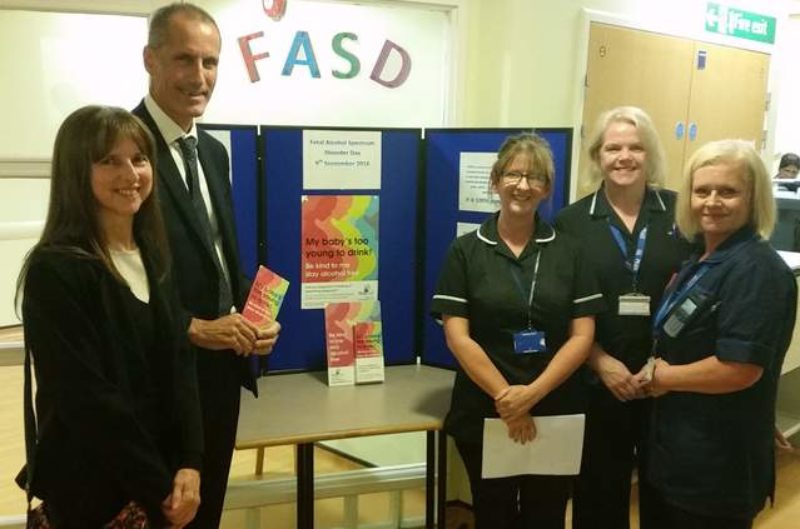Bill Esterson Member of Parliament for Sefton Central
Foetal Alcohol Spectrum Disorder

There is a public health emergency looming over our country, a hidden epidemic of staggeringly damaging proportions that demands our attention. It is the damage being done to thousands of children every year before they are born through exposure to alcohol during pregnancy, so-called foetal alcohol spectrum disorders.
The reason for describing it as an epidemic is the same reason why it happens in the first place. Lack of awareness. That is true of the public and it is true for too many professionals in the NHS too.
The conditions covered by foetal alcohol spectrum disorders (FASD) describe irreversible damage to the brain and are characterised by emotional, behavioural and learning difficulties for those affected.
These conditions last a lifetime and the damage done produces difficulties in family life, at school, in gaining qualifications, and in building relationships with others.
Mental ill health is common and continues into adult life, when finding employment, navigating the benefits system, understanding the basics of every day life and managing finances. As a result, homelessness, unemployment and criminality are sadly also all too common. The Canadian government estimates that half its prison population has FASD. I wonder what the figure is here.
Many people are unaware of the problems, with not nearly enough research into it and not nearly enough attention paid to it at governmental level. There have been encouraging signs recently, with the National Institute for Health and Care Excellence updating its website to reflect the guidance that the only safe advice to women who are trying to conceive or who are pregnant is abstention from drinking. This followed after the chief medical officer had changed her advice months earlier.
But the advice is not widely understood and many people believe that a few drinks are alright despite the evidence saying this is not so. Some health professionals have a similar view. My ambition is that drinking during pregnancy will be looked upon the same way that we look upon smoking during pregnancy – something that goes against medical guidance and common sense. This will require cross-governmental changes in thinking and approach.
In November a “Worldwide Economic Impact of FASD” was released by Larry Burd and colleagues at the University of North Dakota School of Medicine and Health Sciences.
They estimated that the total cost of an adult with FASD was roughly $24,000 a year, and slightly less for children.
Anecdotally there is evidence of further costs to the justice system, leading to the researchers saying that they may have been too cautious in their assessments.
A recent study in Britain suggests that anywhere between 6 per cent and 17 per cent of children could have symptoms associated with FASD. That implies between 42,000 and 119,000 children possibly being born each year with FASD and means several million of us may have the condition. Ever struggled with bright lights or fuzzy patterns on wallpaper or reacted to sudden noises? Struggled to understand nuance in conversation or to relate to others? All symptoms of FASD may have been otherwise diagnosed at a time when the condition was not as understood.
This country has the fourth highest level of prenatal alcohol use in the world but we have never tried to work out the level of FASD. While other nations such as Canada, recently announced $1.1 million over three years to help support Indigenous children who have, or may have, FASD as well as their families, we have unfortunately sat on our hands.
This is a hidden epidemic.
A UK study suggests that 79 per cent of women say they drank alcohol while pregnant. This needs proper attention for the good of the children affected but also because it comes with seriously high costs. The Americans call FASD babies million-dollar babies. With such a high price tag, the real question for ministers is not whether we can afford to act but whether we can afford not to.
For more information on Foetal Alcohol Spectrum Disorder, visit the NHS website here or watch the video from Mencap below.
